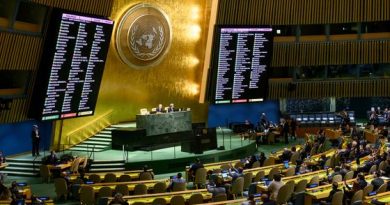WEF 2016 Focuses on Gender Equality
By Emily Green
News Editor
On January 20, more than 2,500 leading politicians, businessmen, academics, and civil society representatives gathered in Davos-Klosters, Switzerland for the 45th World Economic Forum Annual Meeting (WEF). The four-day forum invited presidents and business executives to contemplate the 2016 theme, “Mastering the Fourth Revolution.”
The theme covered a wide range, including Forum Founder and Executive Chairman Klaus Schwab’s recent allusion to an impending “technological revolution” that would “fundamentally alter” the global community, triggering both new innovations and a symptom of “greatest societal concern,” inequality.
Tackling inequality took center stage following the release of the WEF’s Global Gender Gap Report. Using “economic, educational, health-based, and political indicators,” the comprehensive 2015 report ranked 145 countries based on how gender-inclusive their economies were that year.
Nordic countries dominated the list, with the top four slots going to Iceland, Norway, Finland, and Sweden, respectively. The United States held the 28th slot, falling eight places since 2014 due to “decreased wage equality and changes in political positions.” Although the report recorded progress in women’s political representation, the document illustrated a persisting gap between women’s education and labor force participation.
In response, WEF participants flooded the forum with discussions on gender equality. In a session on “Progress Towards Parity,” Justin Trudeau, Prime Minister of Canada, spoke of the strategy behind his 50/50 cabinet, explaining his “Ask Her to Run” campaign
Sheryl Sandberg, Facebook’s chief operating officer, linked inequalities back to childhood, where a “toddler wage gap” begins a lifetime of domestic divisions, such as a difference in allowances for household chores. Issue briefings were to discuss the negative impact of labor market shifts on female talent.
Addressing female labor force participation, ten Fortune 500 companies teamed up with UN Women’s HeForShe initiative for the organization’s inaugural 2016 Corporate Parity Report. The report, which profiles companies like Barclays, Twitter, AccorHotels, Unilever, PricewaterhouseCoopers, and Tupperware Brands, incentivized gender equality by recognizing industry leaders as ‘Corporate Champions.’
‘Champion’ CEOs undertake three core commitments: sign a CEO statement of support for women’s empowerment principles, launch HeForShe within their company, and champion the campaign at the executive level. Although the report presented industry-wide inequalities, the companies in collaboration with HeForShe reported earnest progress in combating gender equality.
Despite focused seminars on gender equality, the WEF faced parity issues of its own. Women constituted a meager 17 percent of 2016 participants, rising just one percentage point from the year prior. With WEF’s history of high-level leaders, the lack of female representation reflects a reality where men remain at the top, in both the public and private sectors.

